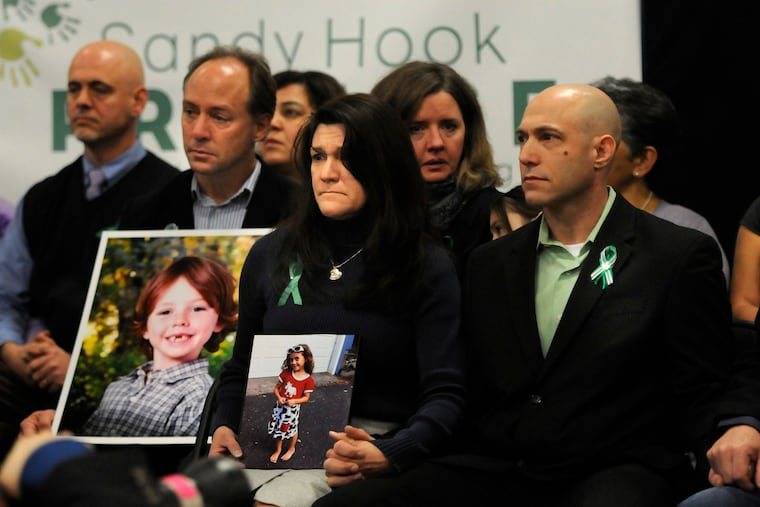Father of Sandy Hook victim is latest mass-shooting survivor to be found dead. What are the signs of possible suicide?
Mental health experts say suicide is a public health concern and it’s usually preventable.

The father of a Sandy Hook school shooting victim was found dead in an apparent suicide in Newtown, Conn., on Monday — marking the third death of a mass-shooting survivor in a week, after two student survivors of the shooting in Parkland, Fla., took their lives.
The deaths raised questions on how communities that have been through traumatic experiences can offer support and prevent more loss.
Mental-health experts say suicide is a public-health concern and is usually preventable. People should look for warning signs among loved ones, especially those who have depression, anxiety, post-traumatic stress disorder, or other mental illnesses that increase their risk. These signs include:
Talking about wanting to die or to kill oneself.
Looking for a way to kill oneself.
Talking about feeling hopeless or having no purpose.
Talking about feeling trapped or being in unbearable pain.
Talking about being a burden to others.
Increasing the use of alcohol or drugs.
Acting anxious, agitated, or reckless.
Sleeping too little or too much.
Withdrawing or feeling isolated.
Showing rage or talking about seeking revenge.
Displaying extreme mood swings.
If you notice these signs, ask the person if they’re feeling suicidal. Experts say it’s best to be direct rather than using euphemisms, such as, “Have you been having disturbing thoughts?” or “Are you thinking of the S-word?” Instead, ask the person: “Are you thinking of killing yourself?”
A psychiatry professor at Columbia University has developed a set of questions that anyone — not just medical professionals — can ask to identify people at risk of suicide.
Another step is to remove any lethal means from the person’s home, said Dan Romer, research director of the Annenberg Public Policy Center at the University of Pennsylvania. Lock up guns and get rid of pills, for instance.
If you or someone you know is thinking of suicide, call the National Suicide Prevention Lifeline at 1-800-273-8255 or text TALK to the Crisis Text Line at 741741.
Twenty children were killed in the shooting at Sandy Hook Elementary School in 2012. Jeremy Richman, who was found dead in Newtown at 7 a.m., the New York Times reported, lost his daughter, Avielle.
In February 2018, 17 people were killed in the shooting at Marjory Stoneman Douglas High School in Parkland, Fla. Last week, 19-year-old survivor Sydney Aiello killed herself, her mother told CBS Miami. A 16-year-old boy from the school was found dead Saturday night in an apparent suicide, the Times reported. His death is still under investigation.